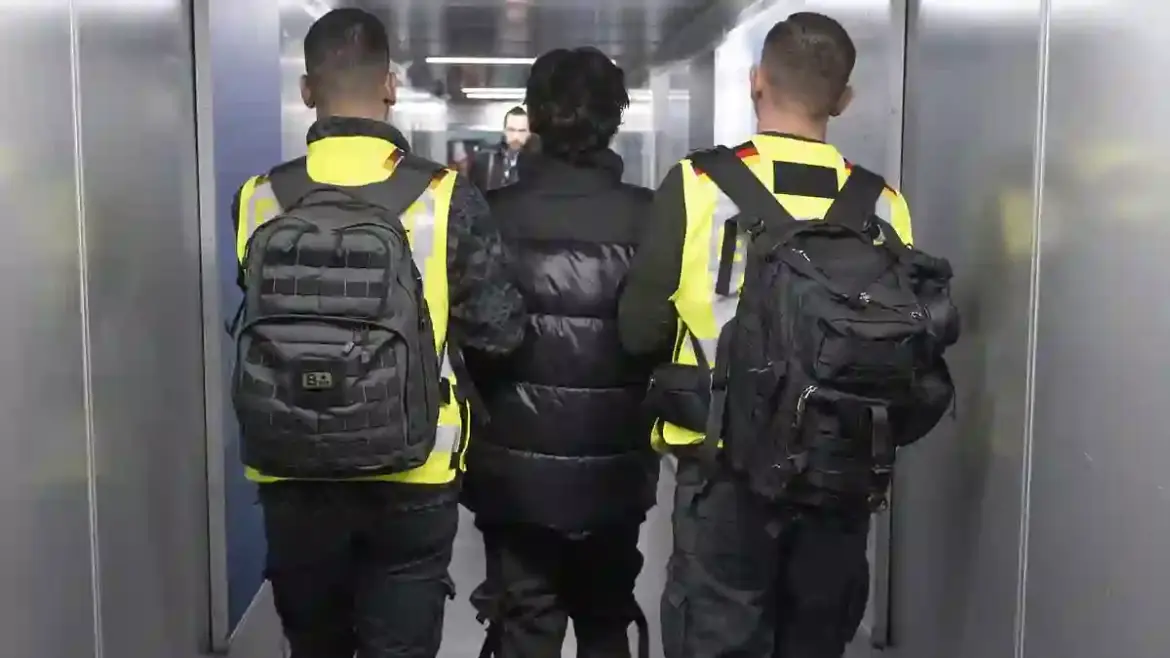Joseph, a talented musician from Nigeria, is now living in hiding in Germany.
Renting a small room from a friend, he leaves only once a week for a secret visit to church, relying on lifts from fellow worshippers instead of public transport.
“I cannot go on the tram, the train, or the bus because the police may see me.
They want to take me to the airport and deport me back to Nigeria,” he whispers over the phone.
For Joseph, and many like him, Germany’s welcoming doors have closed.
Once seen as a land of opportunity for refugees, the country is now cracking down on deportations amid economic struggles, rising crime, and public frustration over the cost of benefits for migrants.
The Shift in Germany’s Immigration Policy
Joseph arrived in Germany in the wake of Chancellor Angela Merkel’s 2015 decision to open the borders to refugees, including those from Syria—and, effectively, from any country.
At the time, millions were welcomed, with German citizens waving banners and balloons at the arrivals. Now, the country has changed course.
Chancellor Friedrich Merz recently declared the welfare system unsustainable, and deportations have surged.
Migrants who once felt secure now face the risk of being sent home, sometimes receiving cash payouts to leave voluntarily.
Weekly government-chartered flights depart from German airports to destinations including Nigeria, Ghana, Serbia, Iraq, and Afghanistan.
The Reality of Deportations
The process, however, is fraught with challenges.
Legal obstacles often delay or prevent deportations, and many migrants go into hiding to evade authorities.
German state TV has documented these operations, highlighting cases ranging from violent repeat offenders to individuals who agree to leave voluntarily in exchange for financial compensation.
Yet even amid legal hurdles, deportations are intensifying.
Germany removed approximately 20,000 migrants in 2024, with a 28 percent increase in the first quarter of this year.
Talks are underway with third countries like Rwanda to further manage those seeking asylum.
Rising Anti-Migrant Sentiment
Incidents of crime involving migrants, including terror attacks and violent assaults, have stoked public anxiety.
One of the most infamous cases was a mass stabbing by a Syrian jihadi in Solingen, killing three and injuring eight.
Nationwide, polls show one in three Germans fear the country may never regain control over mass migration, while more than half report local problems linked to migration.
For Joseph, this atmosphere of suspicion and fear is personal.
Carrying a “red card” from authorities marking him for deportation, he understands he could be next.
Like many migrants, he consults lawyers and clings to any potential legal avenues to stay.
Leipzig and the Struggle to Integrate
Joseph had hoped to build a life in Leipzig, where he could work as a musician or in construction.
Yet even in 2025, African migrants remain rare in the city. Many neighborhoods are now predominantly white Germans or Ukrainian refugees.
Anti-migrant political forces, such as the AfD, have gained influence locally, pushing a narrative that mass migration has been disastrous.
Local officials and residents cite rising knife attacks and public safety concerns, reinforcing opposition to further immigration.
The AfD’s regional leader, Christian Kriegel, bluntly summarized the sentiment: “We said mass migration was a mistake, and now we are vindicated.”
The Legacy of Merkel’s Open Borders
Looking back, the turning point came in 2015 and 2016, when Merkel welcomed thousands of migrants daily.
Initially hailed as a humanitarian triumph, the policy’s consequences became apparent after New Year’s Eve 2015 in Cologne, when mass sexual assaults by migrant men shocked the nation.
Journalists, social workers, and politicians remember the Cologne attacks as a societal wake-up call.
Reports of harassment, assault, and theft revealed vulnerabilities in managing large-scale migration and sparked widespread public debate.
Today, these events fuel the push for stricter deportation policies.
A Country Divided
Germany now faces a stark division. Millions of migrants live in established communities, while authorities continue to enforce deportations.
Schools, healthcare, and social services struggle to cope in many regions, and crime-related incidents continue to stoke anti-migrant sentiment.
For Joseph, the future is uncertain. Once a hopeful refugee seeking safety and opportunity, he now navigates a nation that has reversed course, forcing him and countless others into hiding while the political and social climate grows increasingly hostile.



